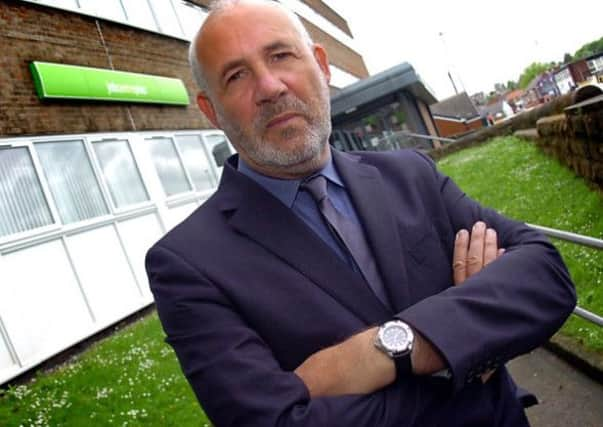Council cuts hit Labour hardest


Figures from the Government’s own records lay bare the full financial impact on households of almost 10 years of austerity by the end of the Parliament.
In a stinging attack, Labour minister Jon Trickett believes the difference in spending between Labour and Conservative run councils in Yorkshire is a betrayal of struggling families, older people and will “hit the poorest the hardest”.
Advertisement
Hide AdAdvertisement
Hide AdConservative run councils of Hambleton, Ryedale and Selby have barely been touched by the axe of public service reform and endured a reduction in spending power per household between 2011 and 2019 of £23 on average.
Labour authority Hull has experienced a reduction in spending per household in the same time period of £535, and Labour run Sheffield has lost £506 and Bradford, also Labour, has lost £483.
Shadow minister for communities and local government, Mr Trickett, said: “Cuts to Labour councils across the country are five times higher than Conservative areas and they penalise people living in the most deprived communities.”
He said the £409 cut per household cut in Rotherham alone was disgraceful considering the difficulties the authority has experienced in dealing with the widespread sexual abuse of women and young girls.
Advertisement
Hide AdAdvertisement
Hide AdThe statistics come as Labour launch their local election campaign with a new website showing by post-code the extent of council service cut-backs since the Coalition set their 2011 budget.
He said he had little faith in Conservative reforms that will hand over business rate control to local Government, ending the long-standing central collection and redistribution to ensure an equitable grant across the country.
Westminster raises £1.8bn alone, which Mr Trickett said helps balance on the money raised in poorer areas across the country. With that money taken out of the system, he argues that when the rates are collected there will be ‘quite serious distributional effects’.
He also dismisses the two per cent precept on council tax to pay for social care and the money proposed to be in invested by the Government in Sheffield as part of their devolution deal with Chancellor George Osborne.
Advertisement
Hide AdAdvertisement
Hide AdHe said: “The devolution deal is £30m for South Yorkshire per year but it’s not to be used for council services.
“It’s for economic development, but it’s dwarfed by the cuts.”
It is understood that the Government dismisses the validity of comparisons on spending pre 2015 and post 2015 because of changes to local government finance that include the localisation of council tax benefit, responsibility for public health, the Better Care Fund, discontinuation of various other government grants and the introduction of business rates retention.
A spokesperson for the Conservative Party, said: “As we continue to deal with Labour’s debt our long-term funding settlement for councils is fair, and ensures those facing the highest demand for services continue to receive more funding and have higher spending power than less deprived authorities.
“Average spending power per dwelling for the 10% most deprived authorities is around 23% more than for the least deprived 10% in 2016/17.”